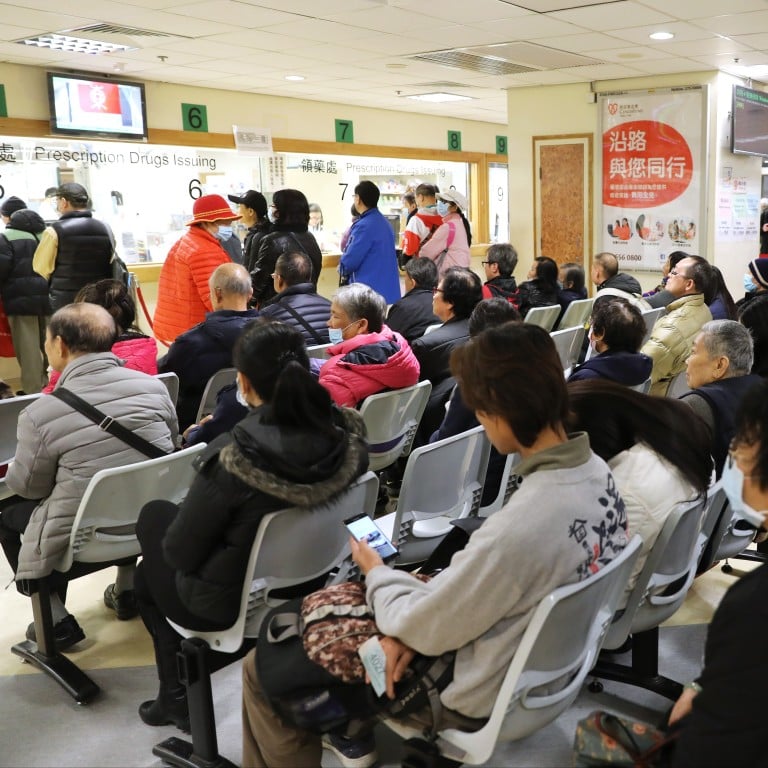
Here’s all you need to know about how to get the biggest tax savings from Hong Kong’s new medical and retirement programmes
- Hong Kong will give you a smaller tax bill if you buy private health insurance and save more for retirement
- How can a married couple make the smartest moves? Here are some hot tips for you
Hong Kong will launch two milestone programmes on April 1 to encourage people to buy private health insurance and save more for retirement by offering them tax breaks. Here’s what you need to know.
Private health insurance
What’s behind this?
What’s the tax incentive?
Annually, it is a HK$8,000 tax deduction for a single person. In a family, the same is true for each member put on private plans. Family members include a spouse, children, parents, grandparents and siblings. There is no cap on the number of family members a taxpayer can buy VHIS-approved plans for and claim as deductions.
Example: A married couple with two children buys into VHIS plans for four. Tax deduction: HK$32,000.
Who qualifies?
Anyone up to age 80 can sign up, and they will be covered to age 100. That includes those on private plans now who move into private plans into an approved VHIS plan.
What if I have a current private plan? Only plans in the VHIS system count. So if you are currently on a private plan, you will need to shift to a VHIS plan to get the tax deduction.
Retirement savings
What’s behind this?
The government’s Mandatory Provident Fund requires employers and employees to each contribute 5 per cent of the individual’s salary at a combined contribution cap at HK$3,000 (US$382.55) a month.
What’s the tax incentive?
To encourage more retirement savings, the government will give up to HK$60,000 annually in tax deductions to individuals who buy a deferred annuity products or contribute beyond their MPF mandatory level. A couple’s limit is up HK$120,000, and they can divide their contributions on their tax forms as best suits their circumstances as long as neither declares above HK$60,000.
For the MPF, the worker must set up a new tax deductible MPF voluntary contribution account to get the deduction.
“The public will need to make contribution to these new accounts to enjoy the tax break,” said a spokeswoman of the Mandatory Provident Fund Authority.
For deferred annuity premiums, “a taxpayer is allowed to claim tax deductions covering the couple as a joint annuitant,” according to a spokesman of BOC Life.
Based on the prevailing highest income tax rate of 17 per cent, the maximum actual tax savings for a single person buying a deferred annuity scheme will be HK$10,200 per year, and will double to HK$20,400 if a spouse is included.
Who qualifies?
A lot of folks. Workers, retired workers, homemakers, or the unemployed can have a personal MPF account to contribute to the tax-free MPF contribution. Civil servants cannot join but they can buy the tax-free annuity products.
Any hitches?
The voluntary MPF contributions can be withdrawn anytime. That’s not true with the extra MPF. You cannot take out money until you are 65 years old, or you retire early at 60, have a terminal illness or leave Hong Kong forever, such as an ex pat returning home.
Hot tip: Hong Kong’s highest tax rate is 17 per cent. Married taxpayers with both spouses working should think about what makes most sense in terms of declaring qualifying private health plans for applicable tax deductions and allowances. Hong Kong tax law permits married couples, subject to certain conditions, to decide whether to combine their tax deductions and allowances.
“Generally, most of the taxpayers may simply let the highest income earner within a family claim the allowances and aforesaid new tax breaks in order to achieve the highest tax savings,” said Janssen Chan, divisional deputy president of CPA Australia, Greater China. “This is because the highest income earner is normally subject to a higher marginal tax rate.”
This works when the pay gap between a couple is big. If earnings are similar, they should be sharing their tax breaks and allowances, he said. This is because under the progressive tax rate, everyone has certain allowances, and a better allocation for each in the marriage would provide the best benefits.
Example: A husband makes HK$600,000 annually and his wife earns $400,000. They each do a voluntary top-up of HK$60,000 to their MPF retirement plans. They buy four qualifying private health care plans for themselves and two family members, for which a total HK$32,000 tax break results.
If the higher income earner – the husband in this scenario – claimed all of the VHIS deduction of HK$32,000, his tax bill would be HK$720. The wife’s would be HK$17,360. The combined tax bill is HK$18,080. The combined two new deduction programmes would cut their tax bill down by HK$13,900.
But that is not the best outcome.
The couple should share the allowances to make sure that their overall income can be effectively subject to the lowest marginal tax rate, Chan said. If the wife claims the HK$32,000 VHIS tax break and shares half of the parent dependent allowance at HK$50,000, her tax bill would be HK$6,600. His one would be HK$5,800. The combined tax bill is HK$12,400. That is down HK$19,580 from the HK$31,980 they would have owed without entering the two programmes.
Bottom line: By taking the second path, the couple saves more.

